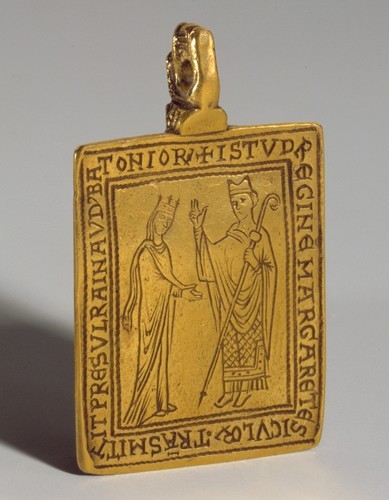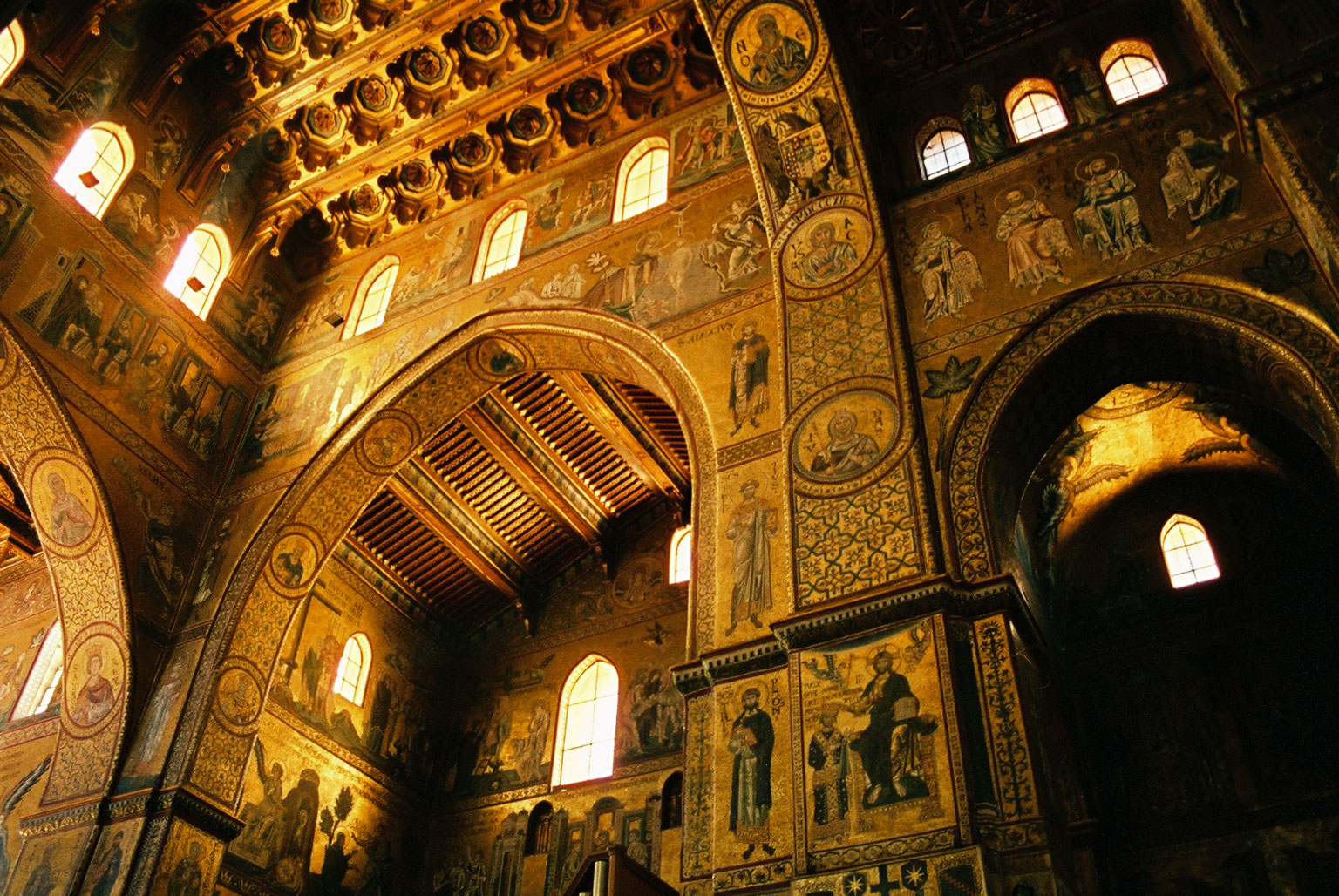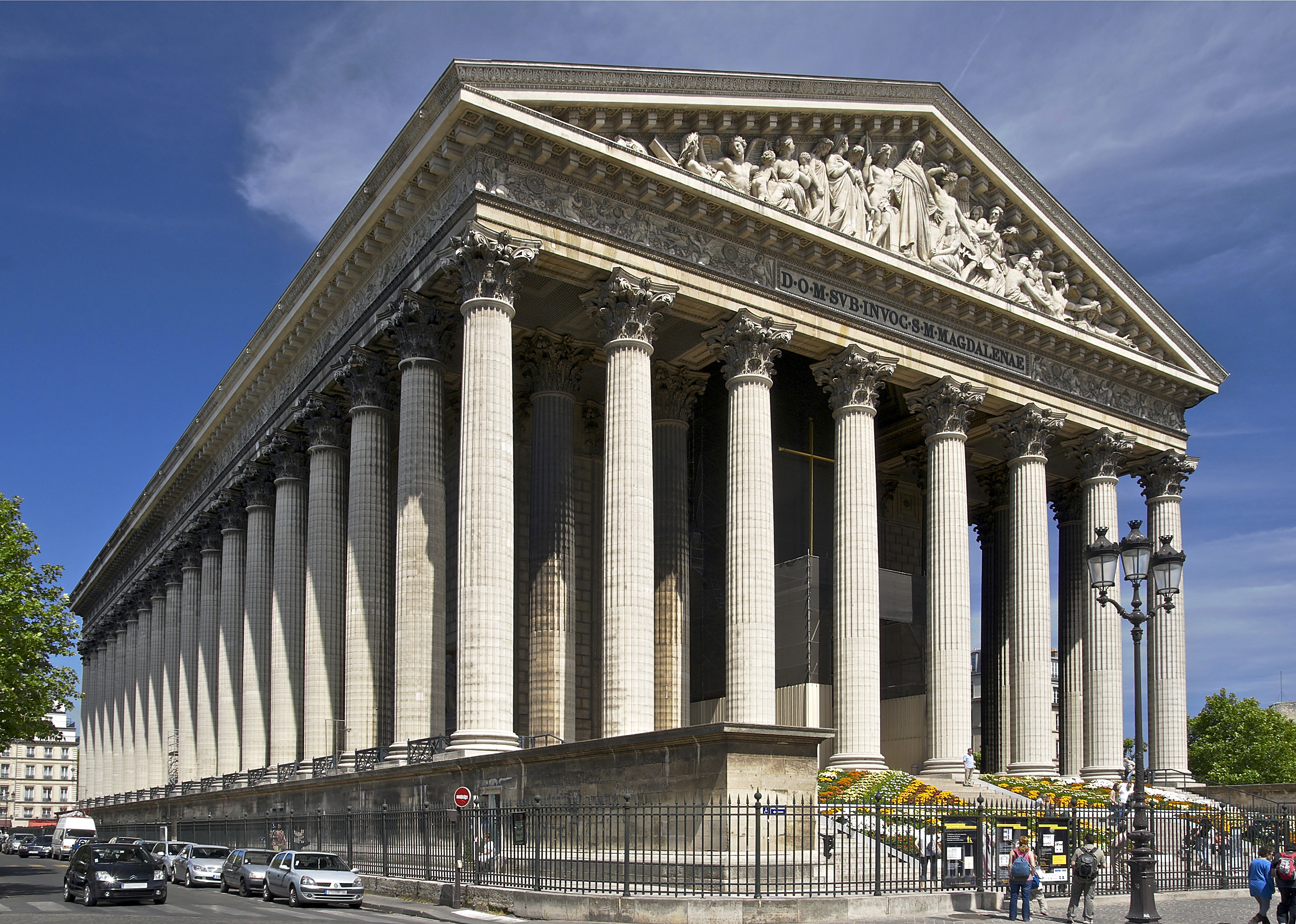|
Church Of The Holy Spirit, Palermo
The church of the Holy Spirit (Italian: ''Chiesa dello Spirito Santo'') is a Norman church in Palermo, Sicily, southern Italy. The church is located within the boundaries of Sant'Orsola cemetery. History The Cistercian monastery was founded between 1173 and 1178 by the archbishop of Palermo, Walter of the Mill, and was entrusted to monks of the calabrese Abbey of Sambucina. Considerable donations of King William II of Sicily and his mother, Margaret, enriched the monastery's property. On March 30, 1282, it was in front of this church that the popular insurrection, later named the Sicilian Vespers The Sicilian Vespers ( it, Vespri siciliani; scn, Vespiri siciliani) was a successful rebellion on the island of Sicily that broke out at Easter 1282 against the rule of the French-born king Charles I of Anjou, who had ruled the Kingdom of S ..., exploded. See also Notes Christian monasteries established in the 12th century Roman Catholic churches in Palermo Arab-Norm ... [...More Info...] [...Related Items...] OR: [Wikipedia] [Google] [Baidu] |
Palermo
Palermo ( , ; scn, Palermu , locally also or ) is a city in southern Italy, the capital (political), capital of both the autonomous area, autonomous region of Sicily and the Metropolitan City of Palermo, the city's surrounding metropolitan province. The city is noted for its history, culture, architecture and gastronomy, playing an important role throughout much of its existence; it is over 2,700 years old. Palermo is in the northwest of the island of Sicily, by the Gulf of Palermo in the Tyrrhenian Sea. The city was founded in 734 BC by the Phoenicians as ("flower"). Palermo then became a possession of Carthage. Two ancient Greeks, Greek ancient Greek colonization, colonies were established, known collectively as ; the Carthaginians used this name on their coins after the 5th centuryBC. As , the town became part of the Roman Republic and Roman Empire, Empire for over a thousand years. From 831 to 1072 the city was under History of Islam in southern Italy, Arab ru ... [...More Info...] [...Related Items...] OR: [Wikipedia] [Google] [Baidu] |
Cistercians
The Cistercians, () officially the Order of Cistercians ( la, (Sacer) Ordo Cisterciensis, abbreviated as OCist or SOCist), are a Catholic religious order of monks and nuns that branched off from the Benedictines and follow the Rule of Saint Benedict, as well as the contributions of the highly-influential Saint Bernard of Clairvaux, known as the Latin Rule. They are also known as Bernardines, after Saint Bernard himself, or as White Monks, in reference to the colour of the "cuculla" or cowl (choir robe) worn by the Cistercians over their habits, as opposed to the black cowl worn by Benedictines. The term ''Cistercian'' derives from ''Cistercium,'' the Latin name for the locale of Cîteaux, near Dijon in eastern France. It was here that a group of Benedictine monks from the monastery of Molesme founded Cîteaux Abbey in 1098, with the goal of following more closely the Rule of Saint Benedict. The best known of them were Robert of Molesme, Alberic of Cîteaux and the English ... [...More Info...] [...Related Items...] OR: [Wikipedia] [Google] [Baidu] |
Roman Catholic Churches In Palermo
Roman or Romans most often refers to: *Rome, the capital city of Italy *Ancient Rome, Roman civilization from 8th century BC to 5th century AD *Roman people, the people of ancient Rome *''Epistle to the Romans'', shortened to ''Romans'', a letter in the New Testament of the Christian Bible Roman or Romans may also refer to: Arts and entertainment Music * Romans (band), a Japanese pop group * ''Roman'' (album), by Sound Horizon, 2006 * ''Roman'' (EP), by Teen Top, 2011 *" Roman (My Dear Boy)", a 2004 single by Morning Musume Film and television * Film Roman, an American animation studio * ''Roman'' (film), a 2006 American suspense-horror film * ''Romans'' (2013 film), an Indian Malayalam comedy film * ''Romans'' (2017 film), a British drama film * ''The Romans'' (''Doctor Who''), a serial in British TV series People *Roman (given name), a given name, including a list of people and fictional characters *Roman (surname), including a list of people named Roman or Romans *Ῥωμα ... [...More Info...] [...Related Items...] OR: [Wikipedia] [Google] [Baidu] |
Christian Monasteries Established In The 12th Century
Christians () are people who follow or adhere to Christianity, a monotheistic Abrahamic religion based on the life and teachings of Jesus Christ. The words ''Christ'' and ''Christian'' derive from the Koine Greek title ''Christós'' (Χριστός), a translation of the Biblical Hebrew term ''mashiach'' (מָשִׁיחַ) (usually rendered as ''messiah'' in English). While there are diverse interpretations of Christianity which sometimes conflict, they are united in believing that Jesus has a unique significance. The term ''Christian'' used as an adjective is descriptive of anything associated with Christianity or Christian churches, or in a proverbial sense "all that is noble, and good, and Christ-like." It does not have a meaning of 'of Christ' or 'related or pertaining to Christ'. According to a 2011 Pew Research Center survey, there were 2.2 billion Christians around the world in 2010, up from about 600 million in 1910. Today, about 37% of all Christians live in the Am ... [...More Info...] [...Related Items...] OR: [Wikipedia] [Google] [Baidu] |
Sicilian Vespers
The Sicilian Vespers ( it, Vespri siciliani; scn, Vespiri siciliani) was a successful rebellion on the island of Sicily that broke out at Easter 1282 against the rule of the French-born king Charles I of Anjou, who had ruled the Kingdom of Sicily since 1266. Within six weeks, approximately 13,000 French men and women were slain by the rebels, and the government of Charles lost control of the island. This began the War of the Sicilian Vespers. Background The papacy versus the House of Hohenstaufen The rising had its origin in the struggle of investiture between the pope and the Hohenstaufen Holy Roman Emperors for control of Italy, especially the Church's private demesne known as the Papal States. These lay between Hohenstaufen lands in northern Italy and the Hohenstaufen Kingdom of Sicily in the south; the Hohenstaufens also, at the time, ruled Germany. In 1245 Pope Innocent IV excommunicated Frederick II and declared him deposed, and roused opposition against him in ... [...More Info...] [...Related Items...] OR: [Wikipedia] [Google] [Baidu] |
Margaret Of Navarre, Queen Of Sicily
Margaret of Navarre (french: Marguerite, es, Margarita, it, Margherita) (c. 1135 – 12 August 1183) was Queen of Sicily as the wife of William I (1154–1166) and the regent during the minority of her son, William II. Queen consort Margaret was the daughter of King García Ramírez of Navarre and Marguerite de l'Aigle. She was married at a young age to William I of Sicily, in 1149, the fourth son of Roger II of Sicily. According to the Palermitan archivist Isidoro La Lumia, she was, in her later years, ''bella ancora, superba, leggiera'' ("still beautiful, proud, light"). During the reign of her husband, Margaret was largely ignored by William who spent much of his time away from court - often frequenting his many personal harems. However, she is considered to have been a stronger, more apt administrator than her husband, and several times convinced him to act where he was determined to be passive. She worked closely with Maio of Bari, the king's '' ammiratus ammiratorum'', ... [...More Info...] [...Related Items...] OR: [Wikipedia] [Google] [Baidu] |
William II Of Sicily
William II (December 115311 November 1189), called the Good, was king of Sicily from 1166 to 1189. From surviving sources William's character is indistinct. Lacking in military enterprise, secluded and pleasure-loving, he seldom emerged from his palace life at Palermo. Yet his reign is marked by an ambitious foreign policy and a vigorous diplomacy. Champion of the papacy and in secret league with the Lombard cities, he was able to defy the common enemy, Frederick Barbarossa. In the ''Divine Comedy'', Dante places William II in Paradise. He is also referred to in Boccaccio's ''Decameron'' (tale IV.4, where he reportedly has two children, and tale V.7). William was nicknamed "the Good" only in the decades following his death. It is due less to his character than to the cessation of the internal troubles that plagued his father's reign and the wars that erupted under his successor. Under the Staufer dynasty his reign was characterised as a golden age of peace and justice. His numer ... [...More Info...] [...Related Items...] OR: [Wikipedia] [Google] [Baidu] |
Walter Of The Mill
Walter Ophamil or Offamil ( fl. 1160–1191), italianised as Gualtiero Offamiglio or Offamilio from Latin ''Ophamilius'', was the archdeacon of Cefalù, dean of Agrigento, and archbishop of Palermo (1168–1191), called "''il primo ministro''", the first minister of the crown. He came to Sicily with Peter of Blois and Stephen du Perche at the direction of Rotrou, Archbishop of Rouen, cousin of Queen Margaret of Navarre, originally as a tutor to the royal children of William I of Sicily and Margaret. His mother was Bona, a patron of the Abbey of Cluny and a ''devota et fidelis nostra'' of the king in 1172. His father is unknown. From his name he was long thought to be an Englishman ("Walter of the Mill") but this interpretation is now rejected in favour of ''ophamilius'' referring to Walter as William II's ''protofamiliaris'', the senior confidant of the king in his royal household, the '' familiaris regis''. Biography Walter's first appearance in the historical record ... [...More Info...] [...Related Items...] OR: [Wikipedia] [Google] [Baidu] |
Cemetery
A cemetery, burial ground, gravesite or graveyard is a place where the remains of dead people are buried or otherwise interred. The word ''cemetery'' (from Greek , "sleeping place") implies that the land is specifically designated as a burial ground and originally applied to the Roman catacombs. The term ''graveyard'' is often used interchangeably with cemetery, but a graveyard primarily refers to a burial ground within a churchyard. The intact or cremated remains of people may be interred in a grave, commonly referred to as burial, or in a tomb, an "above-ground grave" (resembling a sarcophagus), a mausoleum, columbarium, niche, or other edifice. In Western cultures, funeral ceremonies are often observed in cemeteries. These ceremonies or rites of passage differ according to cultural practices and religious beliefs. Modern cemeteries often include crematoria, and some grounds previously used for both, continue as crematoria as a principal use long after the interment ... [...More Info...] [...Related Items...] OR: [Wikipedia] [Google] [Baidu] |
Roman Catholic
Roman or Romans most often refers to: *Rome, the capital city of Italy *Ancient Rome, Roman civilization from 8th century BC to 5th century AD *Roman people, the people of ancient Rome *'' Epistle to the Romans'', shortened to ''Romans'', a letter in the New Testament of the Christian Bible Roman or Romans may also refer to: Arts and entertainment Music * Romans (band), a Japanese pop group * ''Roman'' (album), by Sound Horizon, 2006 * ''Roman'' (EP), by Teen Top, 2011 *" Roman (My Dear Boy)", a 2004 single by Morning Musume Film and television * Film Roman, an American animation studio * ''Roman'' (film), a 2006 American suspense-horror film * ''Romans'' (2013 film), an Indian Malayalam comedy film * ''Romans'' (2017 film), a British drama film * ''The Romans'' (''Doctor Who''), a serial in British TV series People *Roman (given name), a given name, including a list of people and fictional characters *Roman (surname), including a list of people named Roman or Romans *Ῥωμ� ... [...More Info...] [...Related Items...] OR: [Wikipedia] [Google] [Baidu] |
Sicily
(man) it, Siciliana (woman) , population_note = , population_blank1_title = , population_blank1 = , demographics_type1 = Ethnicity , demographics1_footnotes = , demographics1_title1 = Sicilian , demographics1_info1 = 98% , demographics1_title2 = , demographics1_info2 = , demographics1_title3 = , demographics1_info3 = , timezone1 = CET , utc_offset1 = +1 , timezone1_DST = CEST , utc_offset1_DST = +2 , postal_code_type = , postal_code = , area_code_type = ISO 3166 code , area_code = IT-82 , blank_name_sec1 = GDP (nominal) , blank_info_sec1 = €89.2 billion (2018) , blank1_name_sec1 = GDP per capita , blank1_info_sec1 ... [...More Info...] [...Related Items...] OR: [Wikipedia] [Google] [Baidu] |
Church (building)
A church, church building or church house is a building used for Christian worship services and other Christian religious activities. The earliest identified Christian church is a house church founded between 233 and 256. From the 11th through the 14th centuries, there was a wave of church construction in Western Europe. Sometimes, the word ''church'' is used by analogy for the buildings of other religions. ''Church'' is also used to describe the Christian religious community as a whole, or a body or an assembly of Christian believers around the world. In traditional Christian architecture, the plan view of a church often forms a Christian cross; the center aisle and seating representing the vertical beam with the Church architecture#Characteristics of the early Christian church building, bema and altar forming the horizontal. Towers or domes may inspire contemplation of the heavens. Modern churches have a variety of architectural styles and layouts. Some buildings designe ... [...More Info...] [...Related Items...] OR: [Wikipedia] [Google] [Baidu] |






